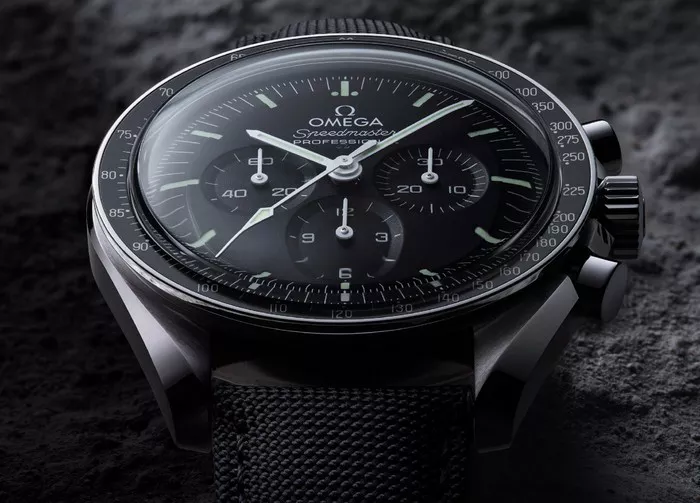Omega’s Seamaster collection is renowned for its excellence in design and functionality, spanning both automatic and quartz movements. This article explores the details and distinctions between the automatic and quartz variants of the Omega Seamaster, focusing on their mechanical intricacies, advantages, and the impact on watch enthusiasts.
Introduction to Omega Seamaster
The Omega Seamaster is a prestigious line of watches that has established itself as a symbol of precision and durability. Originally designed for diving, the collection has evolved to include various models, each offering a different type of movement. Understanding whether a particular Seamaster is automatic or quartz is crucial for enthusiasts and collectors alike.
The Omega Seamaster Collection
The Seamaster collection features several models, including:
- Seamaster Diver 300M
- Seamaster Aqua Terra
- Seamaster Planet Ocean
- Seamaster 300
Each of these models is available in both automatic and quartz versions, catering to diverse preferences.
Automatic vs. Quartz Movements
What is an Automatic Movement?
An automatic movement, also known as a self-winding movement, is powered by the movement of the wearer’s wrist. It features a rotor inside the case that winds the mainspring as it moves. Key characteristics include:
Mechanics: Relies on intricate gear systems and springs.
Power Reserve: Generally has a power reserve ranging from 40 to 72 hours.
Maintenance: Requires regular servicing to ensure optimal performance.
Accuracy: Generally offers precision within a few seconds per day.
What is a Quartz Movement?
A quartz movement is powered by a battery and uses a quartz crystal to regulate timekeeping. Its characteristics include:
Mechanics: Simple electronic circuit with a battery and quartz crystal.
Power Reserve: Typically lasts between 2 to 5 years before the battery needs replacing.
Maintenance: Minimal, primarily involves battery replacement.
Accuracy: Highly accurate, often within a few seconds per month.
Omega Seamaster Automatic Models
Seamaster Diver 300M Automatic
Movement: Omega Caliber 8800, a Master Chronometer movement.
Features: Anti-magnetic properties, 60-hour power reserve.
Design: Includes helium escape valve and unidirectional rotating bezel.
Accuracy: COSC-certified precision, adjusted to 5 positions.
Seamaster Aqua Terra Automatic
Movement: Omega Caliber 8900, also a Master Chronometer.
Features: Co-axial escapement, anti-magnetic, 60-hour power reserve.
Design: Clean and elegant, often featuring a date function.
Accuracy: Superior precision with excellent timekeeping stability.
Seamaster Planet Ocean Automatic
Movement: Omega Caliber 8906 or 8912.
Features: 60-hour power reserve, anti-magnetic properties, chronometer certification.
Design: Robust, designed for extreme conditions.
Accuracy: High precision with advanced timekeeping technology.
Seamaster 300 Automatic
Movement: Omega Caliber 8400 or 8401.
Features: Anti-magnetic, 60-hour power reserve, Master Chronometer certification.
Design: Vintage-inspired, with modern technological advancements.
Accuracy: Highly accurate with COSC certification.
Omega Seamaster Quartz Models
Seamaster Diver 300M Quartz
Movement: Omega Caliber 1538 or other quartz movements.
Features: Reliable timekeeping, low maintenance.
Design: Similar to its automatic counterpart but with a quartz mechanism.
Accuracy: Extremely precise, often within a few seconds per month.
Seamaster Aqua Terra Quartz
Movement: Omega Caliber 1538 or similar.
Features: Elegant design with reliable quartz technology.
Design: Classic look with the convenience of quartz.
Accuracy: Excellent timekeeping with minimal deviation.
Seamaster Planet Ocean Quartz
Movement: Omega Caliber 1538 or other quartz models.
Features: Designed for durability and accuracy.
Design: Strong, robust, suitable for extreme environments.
Accuracy: Reliable precision with very low time deviation.
Seamaster 300 Quartz
Movement: Omega Caliber 1538 or equivalent quartz movement.
Features: Vintage design with modern quartz accuracy.
Design: Classic style with quartz reliability.
Accuracy: High precision and minimal maintenance.
See Also: How Much To Service An Omega Speedmaster
Comparing Automatic and Quartz Omega Seamaster Watches
Precision
Automatic: Highly precise, but can be affected by external factors such as magnetic fields and temperature variations.
Quartz: Exceptionally accurate, typically more stable over time.
Maintenance
Automatic: Requires periodic servicing to maintain performance and accuracy.
Quartz: Requires minimal maintenance, primarily battery replacements.
Durability
Automatic: Often robust and built to last, but requires care to avoid damage.
Quartz: Durable with fewer mechanical parts that can fail.
Design and Aesthetics
Automatic: Tends to have a traditional watchmaking aesthetic with intricate details.
Quartz: Often has a sleek, modern design with a focus on functionality.
Cost
Automatic: Generally more expensive due to the complexity of the movement.
Quartz: More affordable, offering value with precision and low maintenance.
Choosing the Right Omega Seamaster for You
Factors to Consider
Lifestyle: For frequent travelers or active individuals, quartz might be more convenient due to its accuracy and low maintenance.
Appreciation of Craftsmanship: If you value traditional watchmaking and intricate mechanical movements, an automatic Seamaster may be more appealing.
Budget: Consider your budget, as automatic models tend to be more expensive.
Personal Preference
Automatic: Offers a sense of connection to traditional watchmaking and can be a collector’s choice.
Quartz: Provides reliability and ease of use with modern technology.
Conclusion
The Omega Seamaster collection offers both automatic and quartz options, catering to a wide range of preferences and needs. Whether you are drawn to the craftsmanship of automatic movements or the precision and convenience of quartz, Omega provides exceptional choices in the Seamaster line. Understanding these differences can help you make an informed decision and enhance your enjoyment of these remarkable timepieces.


